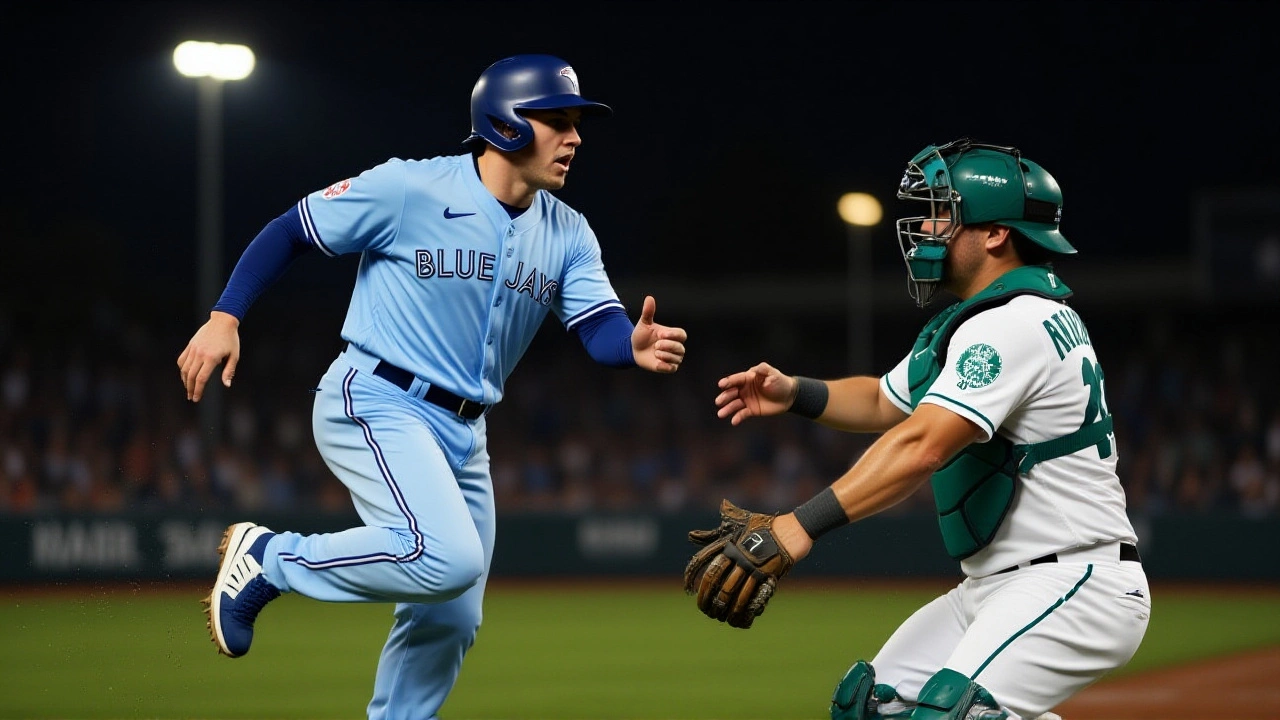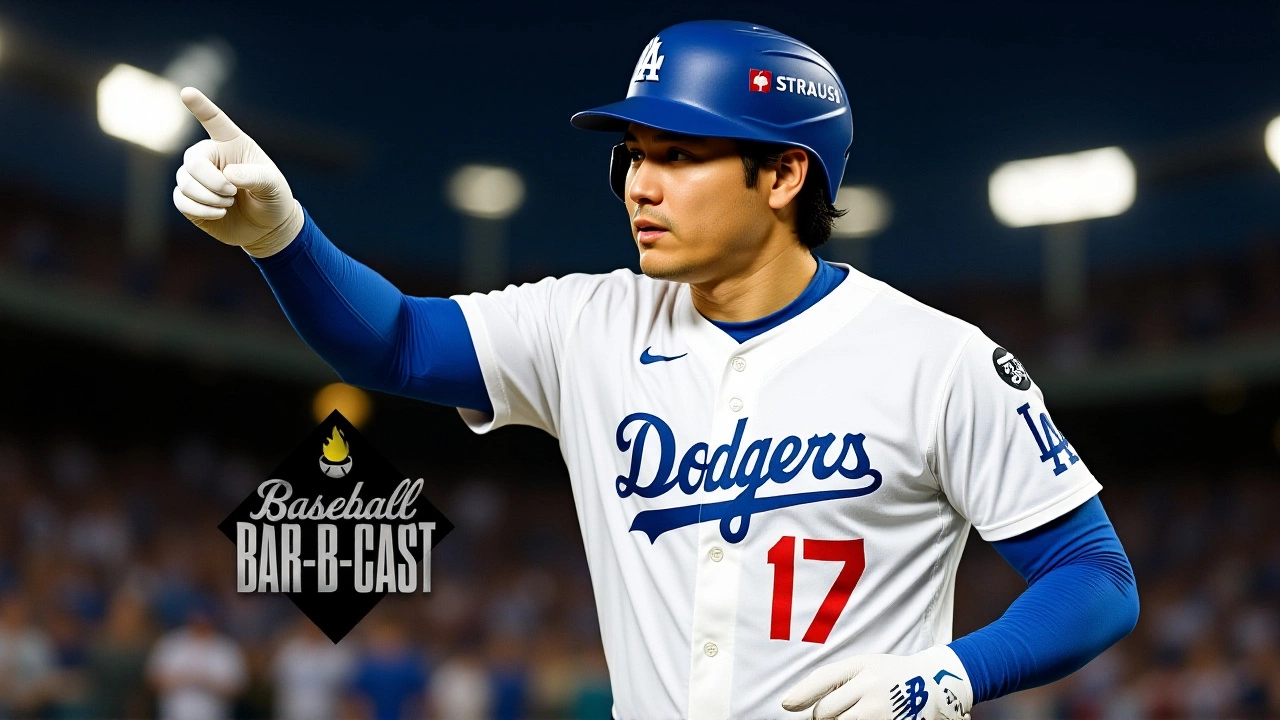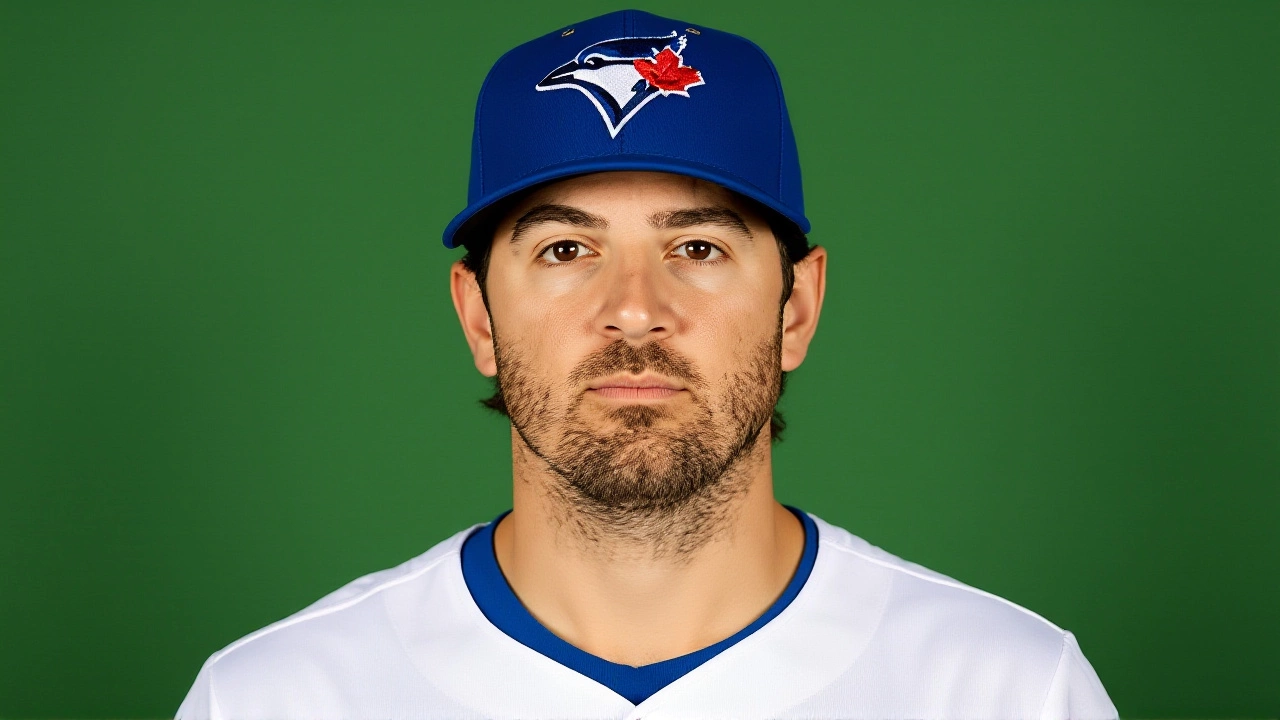When Vladimir Guerrero Jr., first baseman for Toronto Blue Jays launched his sixth postseason homer on Sunday, the Seattle Mariners were already scrambling after a trio of costly errors. The 6‑2 victory at T‑Mobile Park in Seattle not only gave Toronto a lifeline in the American League Championship Series, it forced a winner‑takes‑all Game 7 on Tuesday. The win mattered because the Mariners’ three errors directly produced two of the Blue Jays’ runs, while three inning‑ending double plays turned potential rallies into flat‑lined dismissals.
Game Overview and Critical Moments
Game 6 unfolded like a defensive nightmare for Seattle. After a modest first inning, the Mariners surrendered a run when Julio Rodríguez, center fielder misplayed a soft liner, turning a would‑be single for Daulton Varsho into an extra‑base opportunity. Varsho sprinted to second and later crossed home on an RBI single by Addison Barger. A second miscue came when third‑baseman Eugenio Suárez fumbled a sharply hit grounder from Ernie Clement, allowing the runner to come around to score.
The third error was a wild pitch by Matt Brash that forced catcher Cal Raleigh into a hurried throw that sailed into left‑field, enabling Vladimir Guerrero Jr. to score from second. Those three miscues accounted for two of Toronto’s six runs.
Seattle’s own offense sputtered. The Mariners managed just six hits in 40 at‑bats with runners in scoring position—a paltry .150 average—since Game 3. A baffling trio of double plays, the first by shortstop J.P. Crawford (a 4‑6‑3 DP), the second by Rodríguez in the fifth inning, and the third by the same shortstop in the seventh, made the difference between a possible rally and a quick inning‑ending out.
Mariners' Defensive Woes
Statistically, the Mariners became only the fourth team since 1940 to hit into inning‑ending double plays in three consecutive innings of a postseason game, a fact verified by the Elias Sports Bureau. The first DP came on a routine grounder to Crawford, who turned an effortless 4‑6‑3. The second, perhaps the most ironic, happened when Rodríguez—normally a speedster in the outfield—fielded a soft ball and tossed it to second, only for the runner to be dragged out. The third double play saw Crawford again, this time with a no‑hitter‑in‑the‑making situation that collapsed under the pressure of a tied game.
Coach Scott Servais, the Mariners’ 57‑year‑old manager, faced an avalanche of criticism after the game. "We have to cut the mistakes in half before Game 7," he said in a post‑game interview, acknowledging that the team’s usual offensive firepower—second‑highest run total in the AL during the regular season—had been smothered by sloppy fielding.

Blue Jays' Offensive Highlights
Toronto’s hitters, on the other hand, looked like they were in full cruise control. Guerrero’s solo shot came off left‑handed reliever Matt Brash, but the Blue Jays also took advantage of the Mariners’ defensive lapses. Barger’s RBI single, Varsho’s extra‑base reach, and a clutch two‑run double by J.P. Crawford (yes, the same shortstop who made the double plays) gave Toronto a comfortable lead.
The pitching staff delivered a masterclass in run prevention. Starter Alek Manoah, Toronto’s 27‑year‑old right‑hander, threw six strong innings, allowing just two runs on three hits while striking out nine. His performance set the tone for a bullpen that kept Seattle’s hitters off balance, a stark contrast to the Mariners’ own staff, which struggled to find the strike zone.
What Game 7 Could Hold
Looking ahead, Game 7 is slated for Tuesday, October 21, at the same Seattle venue. The Blue Jays will likely stick with Manoah on the mound, while Seattle is expected to counter with left‑handed ace Luis Castillo. If the Mariners can tighten up their defense and improve that .150 RISP average, they still have a shot. But the odds favor Toronto, especially if Guerrero continues his hot streak; his six postseason homers already place him among the series’ most dangerous bats.
Should Toronto clinch the ALCS, they’ll move on to face the National League champion in the World Series, which opens on Friday, October 24. A win would give the franchise its first title since 1993, a drought that still feels fresh to many long‑time fans.

Historical Context
- Seattle’s three consecutive inning‑ending double plays are the rarest defensive collapse since the 1940s.
- The Mariners’ 90‑72 regular‑season record tied for the best in the AL West.
- The Blue Jays’ 94‑68 mark marked the franchise’s most dominant regular season since 2015.
- Guerrero’s sixth postseason homer moves him into a tie for third‑most in ALCS history.
- Manoah’s 9‑strikeout performance is the highest strikeout total by a Toronto starter in an ALCS game since 2001.
Frequently Asked Questions
How will the Mariners fix their defense for Game 7?
Coach Servais is expected to emphasize tighter cuts on ground balls and a more aggressive positioning of the infield. He may also substitute a more reliable shortstop for Crawford, whose double‑play mishaps have cost the team. The goal is to reduce errors from three to zero, which could keep the game within reach despite Seattle’s offensive firepower.
What impact does Vladimir Guerrero Jr.'s performance have on the Blue Jays?
Guerrero’s sixth postseason homer not only pads Toronto’s run total but also forces Seattle’s pitchers to pitch around him. His presence in the lineup has led to more intentional walks, opening opportunities for hitters like Barger and Varsho to drive in runs, a trend likely to continue in Game 7.
Who are the likely starters for Game 7?
All signs point to Alek Manoah taking the mound for Toronto, while Seattle will likely counter with left‑handed ace Luis Castillo. Both have proven postseason poise, setting up a classic pitcher duel.
What does a win mean for the Blue Jays' World Series chances?
A victory would hand Toronto its first AL pennant since 1993 and pit them against the National League champion in a World Series slated to begin Oct 24. Momentum from a Game 7 win could translate into early confidence against a NL opponent, especially with their potent lineup firing on all cylinders.
How rare is a team hitting into three consecutive inning‑ending double plays in the postseason?
According to Elias Sports Bureau, only three teams have done it since 1940, making the Mariners' defensive collapse one of the most unusual in modern baseball history. It underscores why the error‑filled Game 6 felt like a perfect storm against Seattle.
